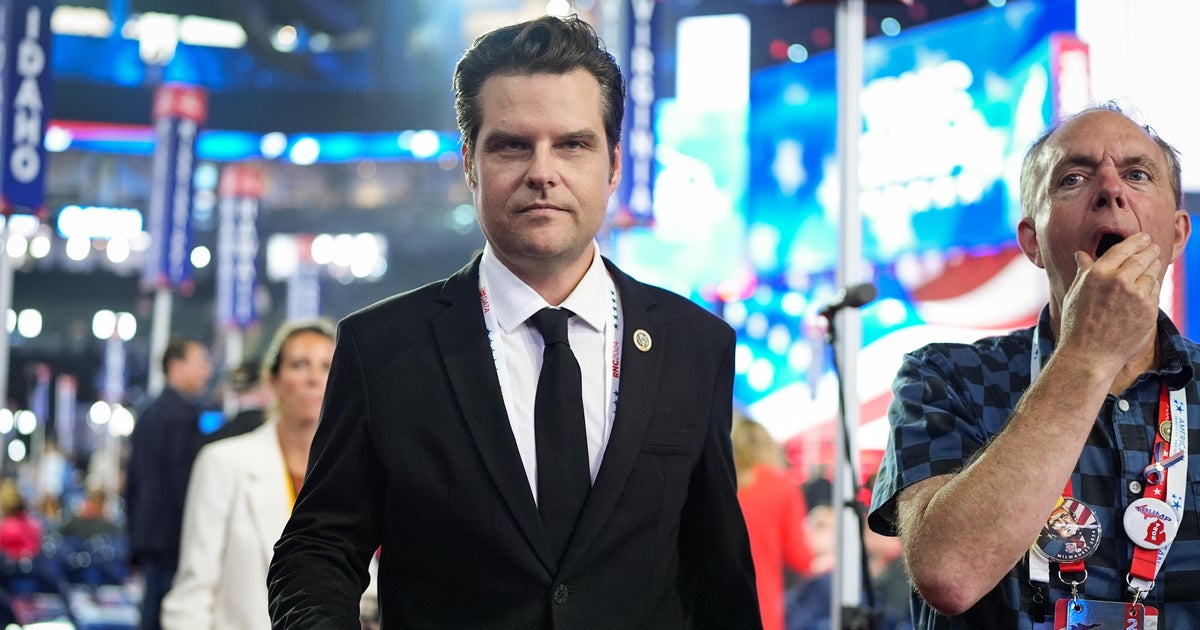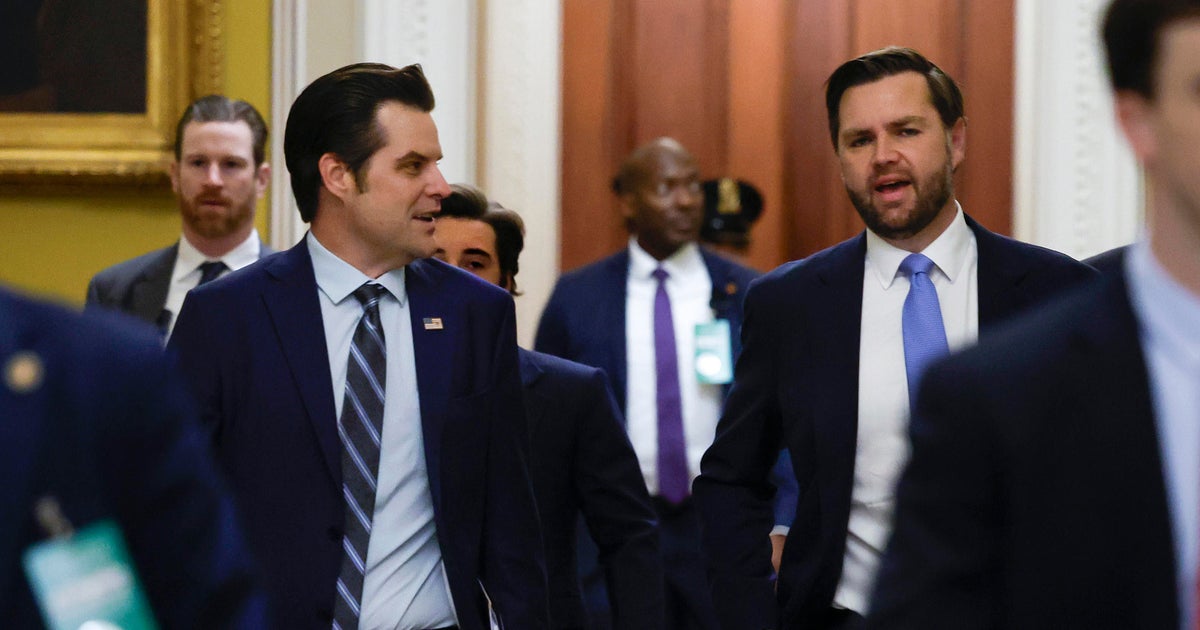Biden and McCarthy meet amid high-stakes debt limit standoff
Washington — President Biden and House Speaker Kevin McCarthy met Wednesday afternoon at the White House amid a looming showdown over raising the debt ceiling, their first meeting alone since Republicans took control of the House and McCarthy claimed the speaker's gavel.
Their conversation took place as tensions between the parties are on the rise over the debt ceiling, although the White House said they covered a "range of issues." McCarthy characterized their meeting as "good," and said they focused on the debt ceiling and spending.
"You know what, the president and I had a good first meeting," McCarthy told reporters outside the White House. "I shared my perspective with him, he shared his. And we agreed to continue the conversation. We want to make sure we do this in a responsible, reasonable way, and we'll be talking again."
"No agreements, no promises except we will continue this conversation," McCarthy added.
In a statement, the White House also said the president and McCarthy "agreed to continue the conversation."
"President Biden made clear that, as every other leader in both parties in Congress has affirmed, it is their shared duty not to allow an unprecedented and economically catastrophic default," the White House said. "The United States Constitution is explicit about this obligation, and the American people expect Congress to meet it in the same way all of his predecessors have. It is not negotiable or conditional."
The U.S. hit the limit on the amount of debt it can issue to fulfill its obligations last month, setting up a June deadline for Congress to either raise or suspend the debt limit after the Treasury Department began taking "extraordinary measures" to keep the nation from a catastrophic default.
While Republicans and Mr. Biden have said the U.S. must not default on its financial obligations, they are at odds over how to deal with the need to increase the nation's borrowing limit.
"I got a big plan," McCarthy told reporters of his intentions ahead of the meeting. "The first question is, does the president want to continue reckless spending or find a way that we can be responsible, sit down and find common ground where we put ourselves on a path to budget, make a balanced budget?"
McCarthy and his GOP colleagues are pushing for cuts to federal spending in exchange for a debt ceiling hike, and argue out-of-control government spending sparked historic inflation last year. Republicans haven't specified which parts of the federal budget they want to slash, but McCarthy told "Face the Nation" on Sunday that cuts to Medicare and Social Security are "off the table."
He did not, however, rule out cuts to military spending, saying he wants the make sure it is "effective and efficient."
"I want to find a reasonable and a responsible way that we can lift the debt ceiling but take control of this runaway spending," the speaker said.
But Mr. Biden and Democrats are pushing for Congress to pass a bill raising the debt ceiling without conditions, and argue Republicans raised the debt limit three times under former President Donald Trump with no strings attached.
Brian Deese, director of the National Economic Council, and Shalanda Young, head of the Office of Management and Budget, wrote in a memo Monday that the president will pose two questions to the speaker during their meeting: will he commit to the "bedrock principle" that the U.S. will never default on its debt, and when will McCarthy and Republicans release their budget?
Mr. Biden is set to release his budget for the federal government on March 9, and Deese and Young said it's "essential" that McCarthy release his own proposal so Americans can see how Republicans intend to reduce the deficit.
"Any serious conversation about economic and fiscal policy needs to start with a clear understanding of the participants' goals and proposals," the senior White House officials wrote. "Speaker McCarthy and his Caucus need to transparently lay out to the American people their fiscal and economic proposals in the normal budget process."
Mr. Biden indicated during remarks in New York on Wednesday that McCarthy's demands stem from the concessions he made to conservative House members during his bid for the speakership, which he won on the 15th ballot and after a bruising four days of voting.
"Look at what the present leader of the Republican Party — a decent man, I think, McCarthy — look what he had to do," the president said. "He had to make commitments that are just absolutely off the wall for a speaker of the House to make in terms of being able to become the leader."
Ahead of McCarthy's White House meeting, Republican Senate Minority Leader Mitch McConnell said it's reasonable for the speaker to demand reductions in federal spending.
"It is right, appropriate and entirely normal that our need to raise the debt limit would be paired with negotiations regarding Democrats' runaway printing and spending," the Senate Republican leader said in remarks on the floor.
McConnell, who played a key role during debt ceiling negotiations with then-Vice President Biden in 2011, urged the president to "begin good-faith negotiations on spending reform with Speaker McCarthy, and do it today."
Complicating negotiations for McCarty is Republicans' thin majority in the House and the various interests of his conference's factions. Conservatives have pushed for a balanced budget within a decade and spending levels to match those enacted in fiscal year 2022, which would require cuts to defense spending, while moderate Republicans want to protect military spending.
Additionally, Trump has warned Republicans not to touch Medicare and Social Security.
"Under no circumstances should Republicans vote to cut a single penny from Medicare or Social Security," he said in a video message last month.
Any proposal will also have to win approval from the Democratic-controlled Senate, where 60 votes are needed for legislation to advance, and earn Mr. Biden's signature.




